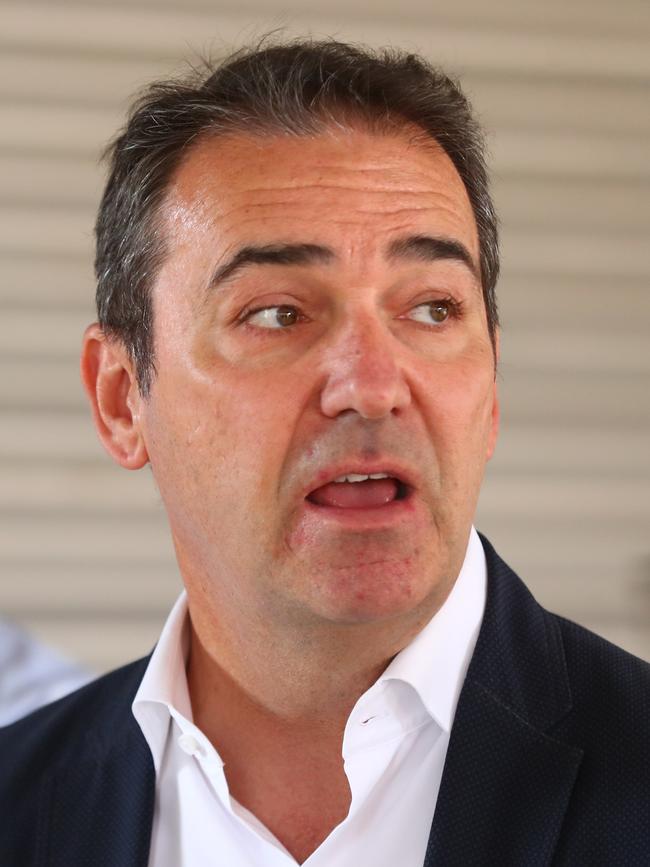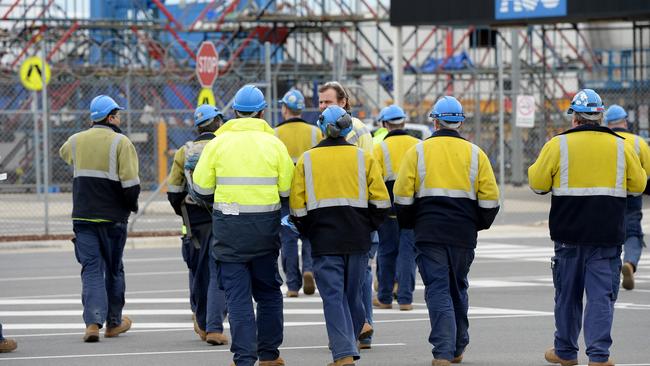SA jobs growth at slowest rate since car industry closure was revealed, with drought and torturous land tax saga blamed
Jobs growth has screeched to its slowest rate since news car-making would end, as industry and experts blame factors including drought and the torturous land tax saga.
SA News
Don't miss out on the headlines from SA News. Followed categories will be added to My News.
- Daniel Wills: Create jobs, Premier, or you’ll lose yours too
- Subscriber rewards: Win Adelaide Oval Stadium Club memberships
Jobs growth in SA has screeched to its slowest rate since revelations the car industry would close, as industry and experts blame factors including the torturous land tax saga and drought.
The ABS this week released figures showing the state’s unemployment rate has returned to the highest in the country, at 6.2 per cent, and Advertiser analysis finds that 2019 was the worst time to be a SA job seeker since the horrific employment conditions of 2013.
It has reignited debate about Premier Steven Marshall’s success in trying to jump-start the economy with tax cuts since his drought-breaking election at the last state election in March 2018.
The total number of people with jobs in SA grew by only 1300 in 2019, the first full calendar year with the Liberals in office. That is a fraction of the 13,300 job increase in the election year of 2018. Labor’s last full year in office, 2017, oversaw the creation of 14,700 jobs.

That was the best result of the decade, coming amid events including confirmation Adelaide had won $90 billion in defence work, and State Government-led job stimulus programs.
Industry groups say they are beginning to see a return of confidence, and Treasurer Rob Lucas insists lower water bills and a big infrastructure build will fire up growth in 2020.
SA Centre for Economic Studies Michael O’Neil said SA’s jobs growth tailed off markedly in the second half of last year, but many factors outside state control had an impact. “It is consistent with a deterioration in external economic conditions with the global economy entering a synchronised downturn, partly driven by Trump tariffs and uncertainty and the (wider) Australian economy continuing to grow at a subdued pace,” he said. “Industry-specific factors played a role. Construction activity peaked mid last year and then started to recede, including closure of businesses, while the winter crop last financial year was below average.”
Business SA chief executive Martin Haese said there was no doubt that uncertainty over land tax, a policy which was in flux for six months as industry groups and even backbench Liberal MPs fought for change, had “put a severe dent in business confidence” last year.
“Business confidence was in free fall for three successive quarters,” he said. “Given that many of Business SA’s members are small to medium sized businesses across many industry sectors, these results were of real concern. It’s not surprising that business confidence suffered last year and employment growth was down.”

Treasurer Rob Lucas said the Government was rolling out a $12 billion building program that included roads and schools, while being determined to further slash costs.
“There was uncertainty in the market last year over the land tax changes,” he said.
“That is now done and dusted. From a business view point, we are looking at a $189 million cut in land tax from July this year. Add that to payroll, ESL and water cost reductions this year. There is significant public spending, and reductions in cost.”
Australian Industrial Transformation Institute director John Spoehr said ensuring the Collins Class repair work remaining in Adelaide was essential to building future industries. “We have a problem of insufficient investment and demand,” he said. “We have to accelerate the modernisation of SA industry through adoption of advanced digital technologies, underpinning a raft of new employment opportunities that are available in the digital age.”
Professor Spoehr said he was concerned by a lack of full-time jobs, and it was critical that infrastructure spending and the NDIS rollout were sped up to take up the slack.
Opposition treasury spokesman Stephen Mullighan said the axing of job creation programs of the former Labor government, and the land tax “debacle” had slowed jobs growth.
Property Council of Australia SA executive director Daniel Gannon, who was one of the loudest voices in demanding changes on land tax, said 2020 looked more positive.
“Forward work schedule and staffing level expectations have improved,” he said.
